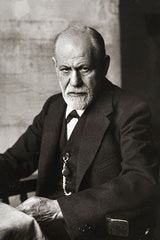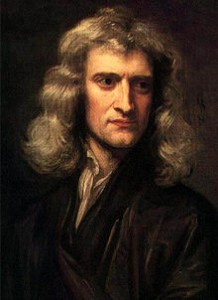Frankl in a Fallen World
Viktor Frankl. We learned about him in class today, and I think that was one of my favorite lectures of this semester. What an incredible man. His story is heart wrenching, his character is beyond unique; it is steadfast and loving and humble and open. He has many Christ-like qualities and I put him in the category of the Fall- not because he himself seemed fallen, but because the world around him was crumbling and he rose above it.
I have been to Auschwitz concentration camp. It was at the end of a mission trip to Poland my youth group went on. I remember reading Night by Elie Wiesel and actually finishing it as we pulled up to the camp. You can’t really describe what it is like to walk around and see all the brick buildings, the dorms, the shoes, combs, hair. The gas chambers. It is like walking around a ghost town, only wondering in a sort of awe at the horrors that happened there. That was a fallen time. That was a time where death and life intermixed in a twisted dance that left everyone stumbling. Evil prevailed in expected and unexpected ways. Evil blinded; evil killed.
Frankl seemed to remain certain through his time at Auschwitz. He helped others, he cared for the sick, he survived. Frankl decided to persevere as best he could, and he did so with grace. This reminds me of Christ as he carried the cross through the streets of Jerusalem. He was scorned, spit at, discouraged, beaten, broken. Yet he showed kindness and perseverance to finish the task. Frankl had accepted death as a possibility. So did Jesus.



Caroline Nikolaus on Gall's Phrenology and Fall
10:20 pm, 10.21.13
Gall really is fascinating, and I was thinking the same thing- Jacey! Does he have theories about the good attributes of human nature? Or what we should do about that? Does Gall only speculate about how he can tell if someone is good or bad, or does he call for a movement to use this skill for the betterment of society? Get rid of the bad? Pair the good ones together? Did he think the bumps were passed down through the generations? It’s all interesting to think about.
Caroline Nikolaus on Darwinism - Creation
10:03 pm, 10.21.13
I agree with a lot of what you say, D.J. I have a deep respect for Charles Darwin. I also find it fascinating to imagine what exploring the Galapagos Islands would have been like, and what Darwin would have felt discovering new species and seeing a new world- definitely “opens up our imaginations.” I view him as almost an author to our imaginations.
Caroline Nikolaus on Romanticism
6:22 pm, 10.07.13
This was very interesting! I haven’t thought about the parallelism between Romanticism and Christianity before, but I like how your post expostulates this. Romanticism can be taken to be an almost selfish theology in that it is about the individual and finding pleasures, but you could take that through the lens of Christianity and say you find God looking inward- Christ in you- and from that comes daily living, care of the self, etc….
Caroline Nikolaus on Kierkegaard and Humanity
6:12 pm, 10.07.13
Good post- I love this quote: “As we grow older we can be saved.” This is an interesting idea to think about, that yes, at some point, we must grow. There is a learning process, an awakening into knowledge that for Kierkegaard comes in stages. What does he say about people who do not transition in this order, is that possible? Or people who never reach certain stages?
Caroline Nikolaus on Jean-Jacques Rousseau
6:08 pm, 10.07.13
It is interesting to consider what our “chains” are, especially in current society. I think anxiety and social phobias are great examples of what can chain people down. They are psychological barriers that hinder people from certain reality and from daily functioning. I think prejudice is also a chain, having pre established ideas about groups of people that in some way affects how you think about them- a chain of perspective.
Caroline Nikolaus on Creation and Divine Intervention
11:56 am, 09.21.13
I love this painting. It’s funny because I have been to the Sistine Chapel more than once, and I never realized that God’s surroundings look like the human brain! But I liked studying this in class: that we see the body, mind, and spirit represented in this painting. It creates a sense of wholeness and interconnectedness between humans and God the Creator. Malebranche’s ideas about divine intervention are comforting to me because I want God to be active in my life, I want him to know my emotions and my thoughts.
Caroline Nikolaus on Erasmus - Redemption and The Turn Tables
11:11 am, 09.21.13
It is an interesting idea to me, thinking about the world needing the church to have more say in current society. Recently, churches seem to be altering their attitudes and appeal in how they reach out and draw people in (whether that be because they are learning or because they want to expand…whatever). But there will forever be a stigma against churches, I don’t think that will go away. Above most everything else, the church (and religion) never fails to be highly criticized, to be judged or praised, to be put in the spotlight and examined.
So why not follow Erasmus in getting away from all that? In focusing not on what the church is doing right or wrong, but on the example of Jesus and a personal relationship with him.
Caroline Nikolaus on "To be is the be perceived" -- Berkeley and Creation
10:54 am, 09.21.13
Jess, I love your thoughts on this. You explain Berkeley’s beliefs in a very intelligent and reflective way. Throughout time it has been hard for humans to look past what we can see; there is a mind block for many people to attempt and even attain a higher level of thinking for certain unknowns in life, especially Creation. Berkeley presents us with a fascinating idea that “we are in a world of our perceptions and nothing more.”
I like thinking that my perception of reality is a reflection of God’s perception, or it is through understanding God’s perception that we understand the world.
Caroline Nikolaus on Socrates - Creation and Redemption
11:46 pm, 09.09.13
“To Socrates, gaining knowledge involved methods of questioning things that were blindly accepted in society that included inductive definition.”
What a great line. How true is it that society blindly accepts things as they are, without even looking into the deeper meaning, or if there is even a meaning behind them. In a way, this makes me think about all the different world views we have (I guess it can parallels the different levels of knowledge we have). I find my worldview very different than others here because I have lived overseas for half of my life and been immersed in cultures different than American. I think for anyone who has traveled or experienced a different culture in this way, it is easy to say that your perspective changes, it becomes wider the more you know about the world. I think Socrates’ philosophy leaves us with a sense to at least dig deeper and really take in what you are experiencing as you go through life.
Caroline Nikolaus on Pythagoras and Creation
11:35 pm, 09.09.13
I do like the fact that Pythagoras’ ideas and methods were used in a wide spectrum of fields of study. They can be used to explain creation, as you say. They tell us about mathematical equations and patterns, systems in our world that we now see making sense. He explains vibrations of sound to us- as a musician, it is fascinating to study Pythagoras as the first to distinguish between what sound is “good” and what sound is “bad,” consonance and dissonance. Much can be learned from this interesting and intelligent man.